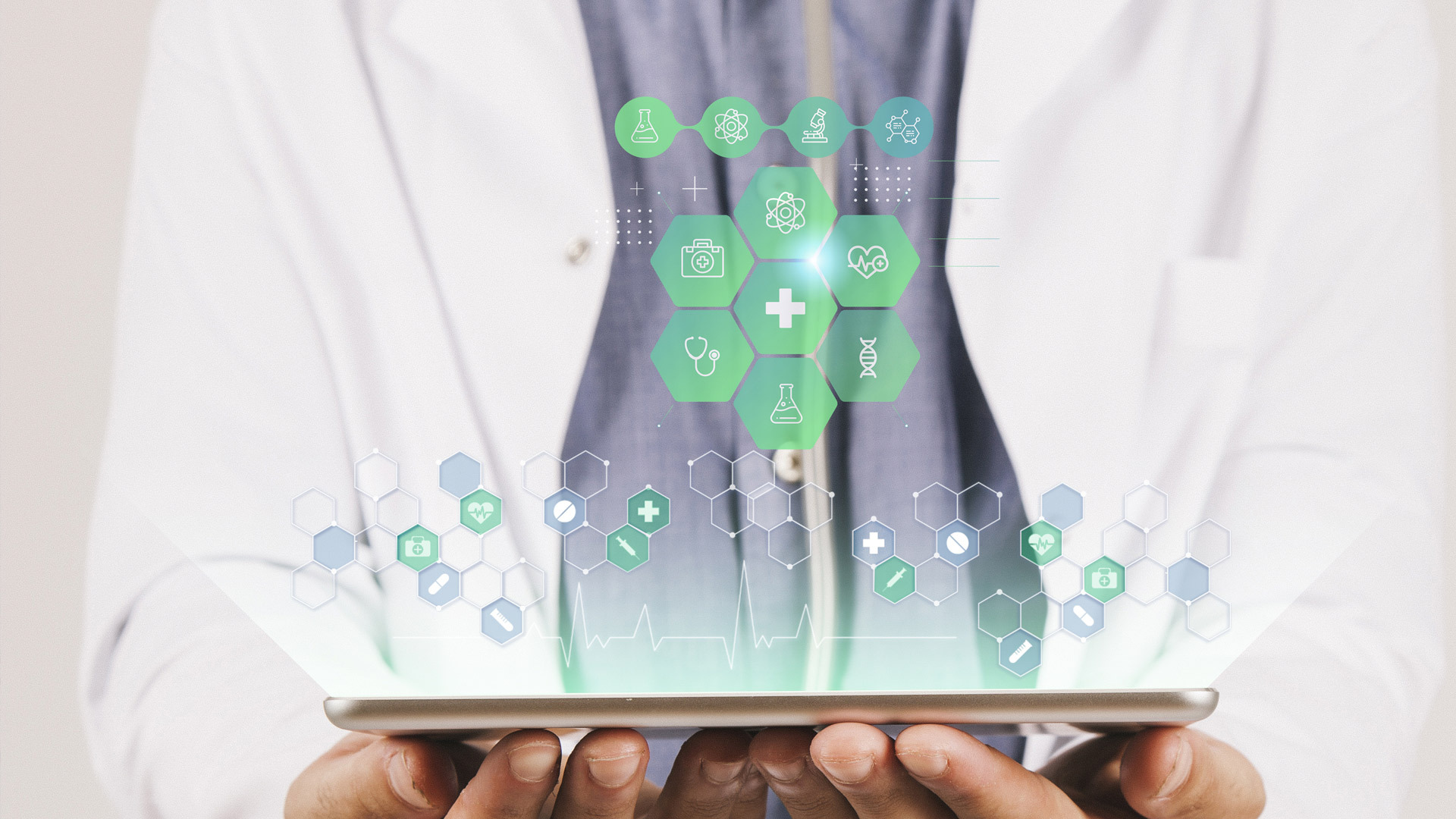Through the use of sophisticated algorithms and data analysis techniques, machine learning is helping doctors and researchers uncover new insights into disease progression, drug efficacy, and patient outcomes. This technology is enabling personalized treatment plans that take into account a patient’s unique genetic makeup, medical history, and lifestyle factors.
In this article, we will explore the exciting ways that machine learning is transforming the healthcare industry and saving lives. We’ll discuss the benefits and challenges of this cutting-edge technology in clinical practice medical research, and highlight some of the most promising applications of healthcare machine learning, from cancer diagnosis to drug discovery.
Whether you’re a healthcare provider, a patient, or simply interested in the latest developments in medical technology and precision medicine, this article will provide you with a comprehensive overview of how machine learning is revolutionizing healthcare.
What Is Machine Learning In Healthcare

Machine learning has a wide range of applications in healthcare, from disease diagnosis and treatment to drug discovery and personalized medicine. In disease diagnosis, machine learning algorithms can analyze patient data such as their medical records and histories, lab results, and imaging scans to identify patterns and predict the likelihood of certain diseases or conditions.
This can help doctors make more accurate diagnoses and develop personalized treatment plans. In drug discovery, machine learning algorithms can be used to analyze large datasets of chemical compounds and predict their potential efficacy and safety.
This can speed up the drug development process and lead to the discovery of more effective treatments. Additionally, machine learning can be used to identify patients who are at high risk of developing certain diseases, allowing for earlier interventions and more effective prevention strategies.
Overall, the applications of machine learning in healthcare are vast and promising, with the potential to improve patient outcomes and transform the way we approach medicine.
Machine Learning Will Revolutionize Healthcare

Machine learning is already beginning to revolutionize healthcare, and its impact is expected to continue growing in the coming years. By analyzing vast amounts of medical data and identifying patterns and correlations that would be difficult for humans to detect, machine learning algorithms can improve the accuracy and speed of disease diagnosis, predict patient outcomes, and identify new treatment options.
This technology is enabling personalized medicine, where treatment plans can be tailored to an individual’s unique medical history, genetic makeup, and lifestyle factors. Machine learning is also helping to speed up the drug development process, by identifying potential drug candidates and predicting their efficacy and safety. With the potential to improve patient outcomes, increase efficiency, and reduce costs, machine learning is poised to transform the healthcare industry in profound ways, paving the way for a healthier future.
10 Benefits Of Machine Learning In Healthcare

Machine learning algorithms can automate routine administrative tasks for health professionals such as appointment scheduling, billing, and data entry, freeing up healthcare providers to focus on patient care.

By analyzing large datasets of medical information and human language, machine learning algorithms can help doctors make more informed decisions about patient care, leading to better outcomes and improved patient safety.

Machine learning can help personalize patient care by analyzing patient data and predicting their needs, preferences, and potential health risks, leading to a more positive patient experience.

Machine learning can analyze medical data to detect early signs of diseases or conditions, enabling earlier intervention and potentially life-saving treatments.

By analyzing a patient’s unique medical history, genetic makeup, and lifestyle factors, machine learning can help medical professionals develop personalized treatment plans that are tailored to the individual, improving outcomes and reducing side effects.

Machine learning can predict patient outcomes and identify high-risk patients, allowing healthcare providers to intervene before a condition worsens.

Machine learning algorithms can analyze large datasets of chemical compounds and predict their potential efficacy and safety, speeding up the drug discovery process for pharmaceutical companies and leading to the development of more effective treatments.

Machine learning can improve efficiency and reduce costs by automating routine tasks, reducing errors, and with clinical decision support optimizing treatment plans.

Machine learning systems can analyze patient data from remote monitoring devices such as wearables, enabling healthcare providers to monitor patients’ health in real-time and intervene when necessary.

Machine learning can analyze large datasets of medical information to identify population health trends and have data scientists develop targeted public health interventions, leading to improved overall health outcomes.
The Most Popular Machine Learning Algorithms Used In Healthcare

Machine learning has become an indispensable tool in the healthcare industry. By using large amounts of data and algorithms, machine learning can identify patterns and make predictions that can help doctors and researchers in diagnosis, treatment, and prevention of diseases. There are many machine learning algorithms used in healthcare, each with its own strengths and weaknesses.
Support Vector Machine (SVM)
Support Vector Machine (SVM) is a supervised learning algorithm used for classification and regression analysis. It is particularly useful in healthcare because it can handle large and complex datasets with many features. SVM works by finding the best hyperplane that separates two classes of data points with the largest margin.
This algorithm has been used in healthcare for various applications such as predicting heart disease, identifying cancerous tumors, and diagnosing Alzheimer’s disease.
Neural Networks
Neural networks are another popular machine learning algorithm used in healthcare. They are a type of artificial intelligence that mimic the structure and function of the human brain. Neural networks can recognize complex patterns and relationships in data and make predictions based on them. In healthcare, neural networks are used for diagnosis, drug discovery, and personalized treatment.
For example, they have been used to identify skin cancer, detect diabetes complications, and predict patient outcomes.
K-means Clustering
K-means clustering is an unsupervised learning algorithm used for clustering and pattern recognition. It is useful in healthcare because it can group similar data points together and identify patterns that might not be immediately obvious. K-means clustering works by iteratively assigning data points to clusters based on their similarity and updating the cluster centers until convergence.
This algorithm has been used in healthcare for various applications such as identifying patient subgroups, predicting disease outcomes, and analyzing medical images.
Random Forest
Random Forest is a type of ensemble learning algorithm that combines multiple decision trees to generate more accurate and stable predictions. In healthcare, Random Forest can be used for disease diagnosis, risk assessment, and outcome prediction. For example, a study used Random Forest to predict the risk of heart failure readmission based on patient data such as demographics, comorbidities, and laboratory values. The algorithm achieved an accuracy of 83%, which outperformed traditional statistical models.
Long Short-Term Memory (LSTM)
LSTM is a type of recurrent neural network that is designed to handle sequential data with long-term dependencies. In healthcare, LSTM can be used for predicting patient outcomes and disease progression based on time-series data such as electronic health records (EHRs) and physiological signals. For example, a study used LSTM to predict the risk of sepsis, a life-threatening condition, in intensive care unit (ICU) patients. The algorithm achieved an area under the receiver operating characteristic curve (AUC-ROC) of 0.85, which outperformed traditional clinical scores.
Saving Lives With Machine Learning In Healthcare

Machine learning has the potential to save countless lives in the healthcare industry. By analyzing vast amounts of medical data and identifying patterns and correlations that would be difficult for humans to detect, machine learning algorithms can improve the accuracy and speed of disease diagnosis, predict patient outcomes, and identify new treatment options.
This technology can enable earlier detection and intervention for diseases, leading to better outcomes and potentially saving lives. Machine learning can also help to identify high-risk patients, enabling healthcare providers to intervene before a condition worsens and potentially preventing serious health complications or even death.
Additionally, machine a deep learning model can help to develop more effective treatments by identifying new drug candidates and predicting their efficacy and safety. With its ability to improve patient outcomes and save lives, machine learning is poised to have a profound impact on the healthcare industry, paving the way for a healthier future.
Advances In Disease Diagnosis
Machine learning has made significant advances in disease diagnosis, enabling earlier detection and more accurate diagnoses. By analyzing large datasets of medical information, machine learning algorithms can identify patterns and biomarkers that can be used to diagnose diseases such as cancer, heart disease, and neurological disorders.
For example, machine learning algorithms can analyze medical images such as MRI or CT scans to detect early signs of cancer or other abnormalities, potentially enabling earlier intervention and better outcomes. Additionally, machine learning algorithms can analyze a patient’s medical history, lifestyle factors, and genetic makeup to predict their risk of developing certain diseases, enabling earlier screening and prevention efforts.
These advances in disease diagnosis have the potential to save countless lives and improve overall health outcomes, making machine learning an invaluable tool in the healthcare industry.
Increased Efficiency And Cost-Effectiveness
Machine learning has the potential to greatly increase efficiency and cost-effectiveness in the healthcare industry. By automating routine tasks such as data entry and analysis, machine learning applications can free up healthcare providers to focus on more complex and critical tasks, improving overall efficiency and reducing the likelihood of errors.
Additionally, machine learning algorithms can analyze large datasets of medical information to identify areas where cost savings can be achieved, such as reducing unnecessary tests or treatments, optimizing hospital operations, and improving patient outcomes. By enabling more targeted and personalized care, machine learning can also reduce the overall cost of healthcare, potentially saving billions of dollars annually.
These improvements in efficiency and cost-effectiveness have the potential to transform the healthcare industry, making it more accessible and affordable for all.
Medical Imaging Analysis
Medical imaging analysis is an essential part of healthcare, as it enables physicians to diagnose and treat a variety of diseases and conditions. Machine learning has revolutionized medical imaging analysis by improving accuracy, speed, and efficiency of diagnosis.
One key application of machine learning in medical imaging analysis is computer-aided detection and diagnosis, which can assist radiologists in identifying and diagnosing abnormalities. Another application is image segmentation, which involves identifying and delineating different structures and tissues within an image.
Additionally, machine learning can be used to track disease progression over time, enabling physicians to monitor and adjust treatment plans as needed. By leveraging the power of machine learning in medical imaging analysis, healthcare providers can provide more accurate and timely diagnoses, leading to improved patient outcomes.
Personalized Medicine
In addition to improving treatment outcomes, machine learning can also help to reduce the risk of adverse events and medication errors. By analyzing patient data, machine learning algorithms can identify potential drug interactions and adverse effects, enabling healthcare providers to adjust treatment plans accordingly. This can be particularly important in cases where patients have complex medical histories or are taking multiple medications.
Furthermore, these machine learning techniques can be used to analyze data from wearable devices and other digital health tools to monitor patient health and identify potential health issues before they become serious. This can enable healthcare providers to intervene early and prevent more serious health complications, potentially saving lives.
Overall, personalized medicine powered by machine learning has the potential to revolutionize healthcare by enabling more precise, effective, and personalized treatments that can save lives and improve patient outcomes.
Use Cases Of Machine Learning In Healthcare

Diagnosis And Therapy Of Diseases
Machine learning algorithms can be used to accurately diagnose diseases and develop personalized treatment plans. One application is Watson for Oncology, which assists oncologists in creating individualized cancer treatment plans based on patient data.
Personalization Of Treatment
Machine learning can help doctors personalize treatments for individual patients, improving outcomes and reducing side effects. For instance, researchers at the University of California, San Francisco used machine learning to develop personalized treatment plans for brain tumor patients using MRI scans.
Health Care Management
Machine learning can optimize hospital operations, improve patient outcomes, and reduce costs. One example is the PatientKeeper algorithm, which streamlines hospital operations while improving patient care.
Clinical Trials
Machine learning can speed up the drug development process by identifying potential drug candidates more efficiently. The University of North Carolina used machine learning to identify drug candidates for treating Ebola, leading to the development of a promising new drug.
Health Monitoring
Machine learning can detect early signs of disease and predict patient outcomes. DeepHeart, a machine learning algorithm, predicts the risk of cardiovascular disease using data from wearable devices like smartwatches, enabling earlier intervention and better health outcomes.
How AI And Machine Learning Will Impact The Future Of Healthcare?

The implementation of AI and machine learning in healthcare has significant challenges, including privacy, security, and ethical concerns. However, these technologies have the potential to revolutionize diagnosis, treatment, and prevention of diseases through improved accuracy, efficiency, and personalized treatment.
Achieving these benefits requires investments in technology, research, and collaboration among stakeholders. Addressing these challenges is crucial for implementing AI and machine learning in healthcare to benefit patients and advance global health.
The Future Of Artificial Intelligence In Medicine

One major area where AI is poised to have a significant impact is in the field of medicine. AI-powered medical devices are already being used to diagnose diseases, monitor patients, and develop personalized treatment plans. In the future, AI could be used to identify new treatments and cures for diseases, as well as to develop more accurate diagnostic tools and medical procedures. The potential benefits of these technologies are enormous, as they could lead to earlier diagnoses, more effective treatments, and improved patient outcomes.
Future Healthcare Challenges

However, the future of healthcare also presents significant challenges. The rising cost of healthcare, aging populations, and a growing burden of chronic diseases are just a few of the challenges that healthcare systems will face in the years ahead.
AI and machine learning have the potential to help address these challenges by improving the efficiency of healthcare systems, identifying new treatments and cures, and reducing the burden of chronic diseases.
However, realizing these benefits will require significant investments in technology, research, and infrastructure, as well as careful planning and collaboration among healthcare providers, policymakers, and other stakeholders.
Summary
Healthcare machine learning is rapidly transforming the medical industry, with its predictive power proving to be a game-changer in saving lives and improving healthcare outcomes. The ability of machines to learn from data has the potential to improve disease diagnosis and treatment, streamline administrative tasks, and even predict future health trends. In addition to aiding in diagnosis and treatment, machine learning can also improve healthcare management by automating routine tasks and reducing administrative burdens.
This can free up both healthcare professionals and providers to focus more on patient care and enable them to provide a more personalized experience for patients.
However, implementing machine learning in healthcare is not without challenges. Ensuring the privacy and security of patient data is paramount, as is addressing concerns about ethical issues. Furthermore, significant investments in technology, research, and infrastructure will be required to fully realize the benefits of machine learning in healthcare.
Despite these challenges, the potential for machine learning to revolutionize healthcare is immense. With the ability to analyze vast amounts of data quickly and accurately, machine learning has the power to transform how we diagnose, treat, and prevent diseases, and ultimately, save more lives.
As technology advances and healthcare providers continue to adopt machine learning, the future of deep learning in healthcare looks increasingly promising.








